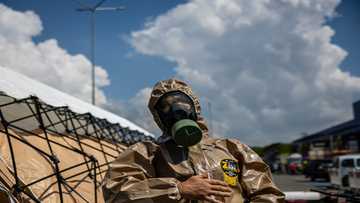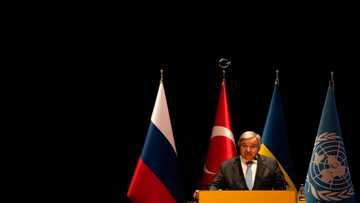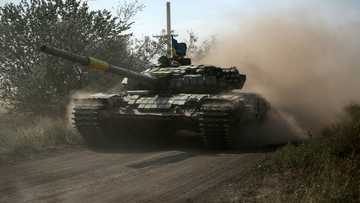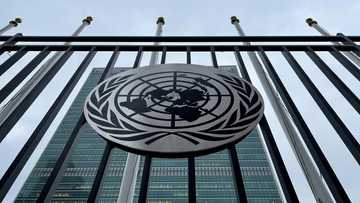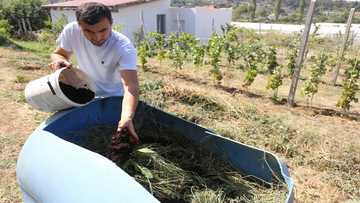Russia-Ukraine War Is Threatening Food Security In Ghana, But Solutions Exist To Overcome A Creeping Crisis
It has been a madhouse on the global front since the Russia-Ukraine war kicked in. But while global mitigation measures are restoring order, the heavy shocks of the war on the food security in Ghana and the rest of Africa remain very much intact. YEN.com.gh speaks to experts on dealing with a dire problem.
New feature: Check out news exactly for YOU ➡️ find “Recommended for you” block and enjoy!
First, the Russia-Ukraine war triggered a baby formula shortage in the United States. Russia’s unfortunate idea of showing its peaceful neighbour “where power lies” was to block Ukraine’s strategic ports.
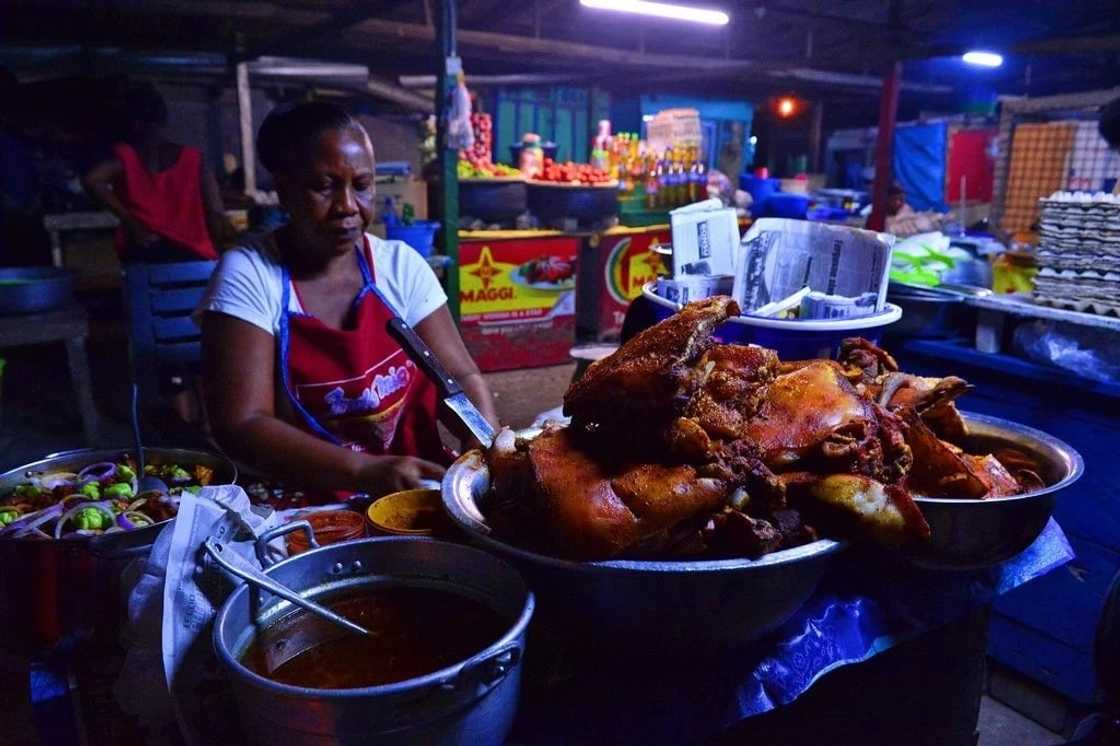
Much of the world depends on Ukraine for sunflower oil, a common ingredient in baby formula. So, Russia’s blockade of Ukrainian ports proved dire for the global production and supply of infant formula.
Next, the war hit the global supply of crude oil. Russia is a “big boy” in crude production, so sanctions placed on it for invading Ukraine unprovoked took a toll on the world. Mitigation measures have significantly solved these two key effects of the war.
But in all of these, one repercussion of the war has remained even dire: food shortage in Africa. It is uncanny that the continent has failed to build and strengthen strategic foundations to ensure sustainable food security for decades. So maybe, the debilitating twin effects of economic chaos and drastic food supply challenges are just the wake-up call the continent needs.
PAY ATTENTION: Follow us on Instagram - get the most important news directly in your favourite app!
The Effects Of The Russia-Ukraine War On Ghana’s Food Security
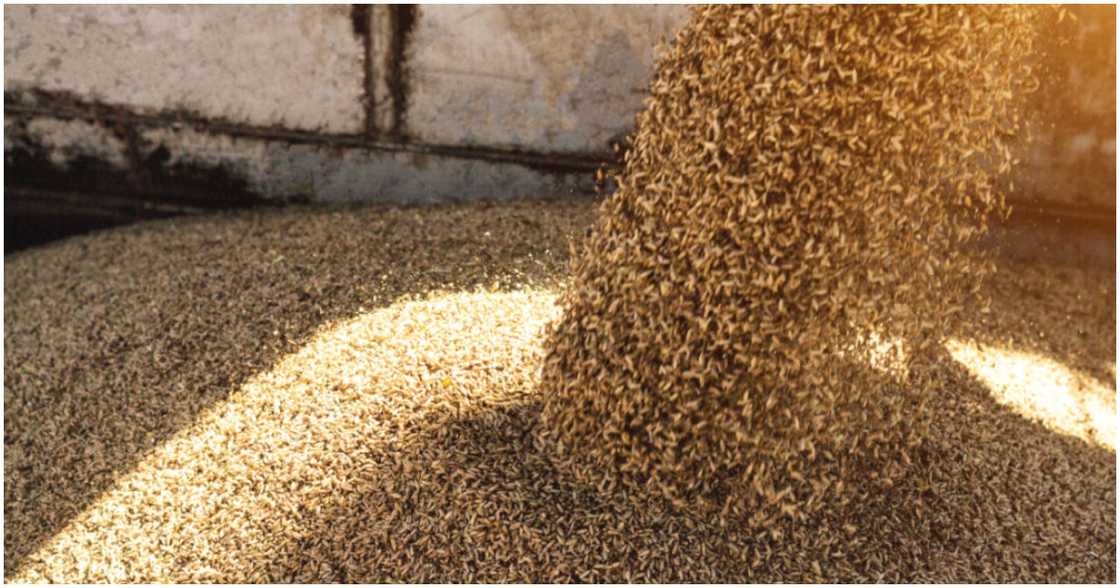
Source: UGC
Like much of Africa, Ghana imports food and agricultural inputs from Russia and Ukraine. Data from the Observatory of Economic Complexity (OEC), a research institution that provides data on the dynamics of the global economic geography, reveals that in 2020 Ghana’s imports from Ukraine reached $81.5 million. Ghana imported processed iron bars, seed oils, and raw iron bars from Ukraine.
Ghana also heavily depends on Russia for wheat, nitrogenous fertilisers and mixed mineral or chemical fertilisers. In 2020, OEC data revealed that Ghana’s imports from both countries grossed over $160 million. While this figure may not paint a vivid picture of the shocks triggered by the war on Ghana’s economy, it makes perfect sense when linked with the global disruption caused by the war.
Because sanctions on Russia have affected Ghana's imports of fertilisers, farmers are bearing the brunt, translating into food short and food inflation due to low yields. In addition, Ukraine’s inability to export, say iron bars, due to Russia’s drastic actions on its ports also took a toll on the construction industry in Ghana.
Dealing With Challenges Caused By The Russia-Ukraine War

Source: Getty Images
Long before the effects of the war in Ukraine would hit Ghana, many of the suggestions from farmer-based associations and civil society organisations on how the country and the whole of Africa can sustain food security have persisted.
For the Executive Director of Peasant Farmers Association of Ghana (PFAG), Dr Charles Nyaaba, it is painful that the government blatantly shunned repeated warnings to develop a domestic industry for agro-inputs to reduce importation.
“Now that we are already in this situation, we must see the need to restructure our [agro] input support. The agric ministry must focus more on domestic production of input. It is the importation of fertiliser and other agro-inputs that is causing the crisis that we are facing,” he told YEN.com.gh in an exclusive interview.
Dr Nyaaba further said the local fertiliser industry has never been able to stand on its feet because of an unhealthy penchant of the government to source them from outside Ghana.
“We need to develop support local fertiliser industry. That is key,” he stressed.
Dr Nyaaba also faulted President Nana Akufo-Addo’s flagship agric programme, the Planting for Food and Jobs (PFJ), for being short-sighted.
“The Planting for Food and Jobs initiative focused too much on producing maize, raise and soya beans. As a result, many investments, in terms of the purchase of fertiliser, went into these grains. So, the shortage of fertiliser resulted in very low yields.
“But cassava was not on the list even though it costs less to produce cassava. Cassava doesn’t need fertiliser but they ignored it. Focusing on cassava would have helped mitigate our challenges tremendously,” he said.
According to him, it is even possible to use cassava as a substitute for maize in the development of poultry feed.
“It is not too late. It is still possible, and government can look in that direction,” he said,.
He has urged the government to task the Council for Scientific and Industrial Research (CSIR), the state-owned science and technology institution, to take up the challenge of tapping into existing research about substituting flour from some of the staple grains with cassava.
Ghana’s inability to achieve sustainable food security also boils down to a lack of investments in modern irrigation practices, according to Dr Nyaaba.
The PFAG boss said Ghana needs a long-term national policy on modern irrigation practices.
“PFJ is short term, it is Akufo-Addo government’s idea. But we need a national policy that every government will buy into in the long term. We need a national plan that will ensure the development of proper irrigation across the country, say a 10-year plan that will task every government to deliver on agreed timelines. Irrigation should be the priority. Not the One Village One Dam,” he said about another of Akufo-Addo’s controversial initiatives to ensure water availability for farming communities.
Africa Has Been Asleep For Too Long About Ensuring Food Security

Source: Facebook
To the Founder of the influential think tank, IMANI Africa, African countries can address food insecurity by fixing domestic financing gaps.
“We do know that African governments promise to modernise agriculture, improve output efficiency, achieve food security, and profitability for farmers and increase agriculture productivity. However, they have not demonstrated significant commitment to prioritising agriculture and food security,” he said.
Mr Cudjoe is right. In 2003, African governments pledged to commit 10% of national budgets to agriculture through the Maputo Declaration in Mozambique. But that has not happened.
According to the Food and Agriculture Organisation (FAO), on average, African governments reduced their agricultural spending from 4.5% of total expenditure in 2001 to 2.5% in 2012.
“Ghana’s real average disaggregated spending on agriculture between 2001 and 2015 was 3.3% and less than 2% of total government expenditure between 2015 and 2020,” Mr Cudjoe said.
The IMANI Africa president said it was strange that despite Africa’s vast natural resources, including a huge expanse of arable land, the continent has the highest incidence of undernourishment, estimated at almost one in four persons worldwide.
Mr Cudjoe said the continent’s $25 billion annual imports of food staples were mainly because food production, supply, and consumption systems were not functioning optimally.
His advice is for African countries to improve their level of value addition through the processing of agricultural commodities, noting that it was unpardonable that post-harvest losses in sub-Saharan Africa averaged 30% of total production.
“This means that the region loses over $4 billion each year to post-harvest losses,” he stressed.
For a long time, Ghana and other African countries have put aside the importance of prioritising investments and sound policies to improve agricultural production. Still, the shocks from the Russia-Ukraine conflict may likely be a loud wake-up call to take action.
New feature: Check out news exactly for YOU ➡️ find "Recommended for you" block and enjoy!
Source: YEN.com.gh


